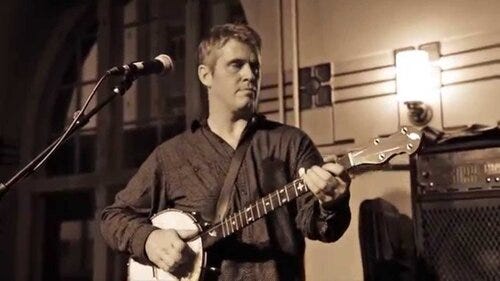This song has been on my mind a good bit lately.
Perhaps that’s because of the drumbeat of certain stories in the news at present. The song has resonance and ideas worth considering beyond the immediate, though.

It is called I Ain’t Playing Pretty Polly.
It is from Dirk Powell.
Dirk is singer, songwriter, player of several instruments, and producer. He comes from a family with strong roots in Kentucky. He’s lived in Louisiana for several decades, and is married to top Cajun musician Christine Balfa. He has won several Grammys, and is known as an expert on Appalachian music.
One of the artists with whom Dirk has produced projects is Rhiannon Giddens. You will hear her adding backing vocals to the song.
There are murder ballads in the music of many cultures, Appalachian and old time music in the United States being two.
If you’ve yet to listen to the song. I’ll note that it is not a murder ballad. It offers perspectives on that sort of song you may not have considered.
This has that promised resonance beyond music history and stories of folk music.
Before the ways of communication available now, murder ballads served as news reports, carrying their stories down the road, over the next mountain, into the next community. As time passed, these songs also became somewhat the equivalent of true crime shows and books available now: they offered ways to explore, relive, and pass on the stories.
In most, but not all murder ballads, the murderers are men. In most, but not all, murder ballads the ones murdered are women.
One of the songs Dirk does not mention in I Ain’t Playing Pretty Polly is Tom Dooley. There’s a good chance, though, that just at the mention of that name you have at least a line or two of that song running through your head.
The Kingston Trio’s recording of Tom Dooley sold four million copies back in the day, six decades and more ago. It stayed at the top of the pop charts for a time. Others recorded it too. Played it, sang it shared it, added it to songbooks, chose it for top song lists.
The song Tom Dooley became part of popular culture. It can be heard today performed by choral groups, sung around campfires, taught as a way to learn chords on instruments.
It’s a murder ballad. The story is based on a real murder in North Carolina. A man murdered his lover. That happened in 1866.
Like the songs Dirk talks of, Pretty Polly, The Knoxville Girl, and others, it’s a song often shared, taught, learned. Without, in most cases, attention paid to the story.
In I Ain’t Playing Pretty Polly, Dirk calls that out, and suggests another way to think about about the songs, and what to do about that.
Am I saying you shouldn’t listen to, play, or share murder ballads?
No. That’s your choice, for your own reasons. .
I am saying, listen to the words of the songs you choose.
I last heard Dirk sing this song in concert on the day of the US presidential inauguration in January of 2025.
He and Rhiannon Giddens were giving a concert as part of Celtic Connections in Glasgow, Scotland. Rhiannon sang the song We Could Fly as part of that same evening. Without mentioning the events of the day or naming any names. they each made their points.
If you’d prefer to make a one off contribution to support my work, you could
!


